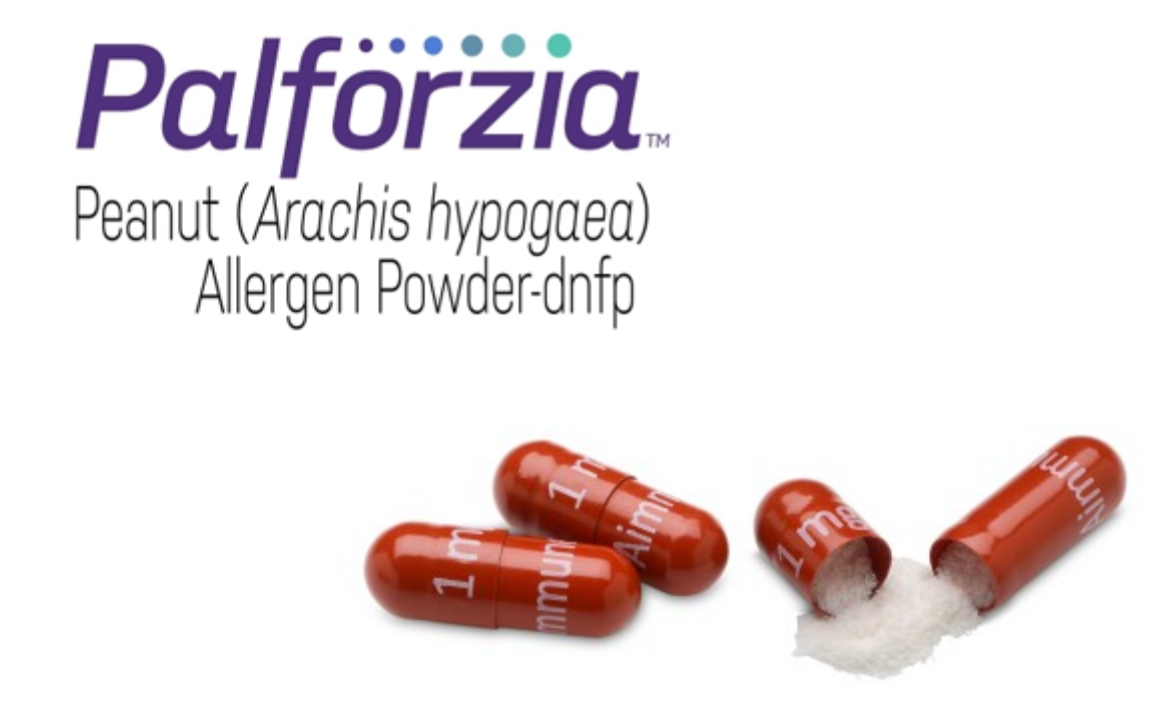
31 Jan Breaking News: FDA Approves Palforzia, a Ground-Breaking Peanut Allergy Oral Immunotherapy Treatment
On Jan. 31, 2020, the U.S. Food and Drug Administration (FDA) announced its approval of Aimmune Therapeutics’ peanut treatment, Palforzia, for children ages 4 to 17.
This is big news for the food allergy community. Food allergies put a significant mental, social and financial burden on families. Until now, strict avoidance has been the only way to avoid allergic reactions. Palforzia may give many families managing peanut allergies more freedom and greater quality of life.
Oral immunotherapy is a type of treatment that works by desensitization. It reduces the chance of a severe allergic reaction from accidental exposure to an allergen. The patient is given small amounts of the food allergen that are increased over time until they can tolerate larger amounts without reaction. The patient then has to stay on the treatment indefinitely.
The FDA approval of this treatment also opens the door for the development of other food allergy treatments. Aimmune is already working on similar treatments for milk and egg allergy. And DBV Technologies is in Phase III of a clinical trial on the Viaskin Peanut patch.
In Sept. 2019, the Asthma and Allergy Foundation of America (AAFA) spoke at the FDA’s Allergenic Products Advisory Committee meeting to highlight the need for food allergy treatments to reduce burden and provide options covered by insurance. Kids With Food Allergies (KFA) is a division of AAFA.
Breaking News: FDA Approves Palforzia, a Ground-Breaking Peanut Allergy Oral Immunotherapy TreatmentNow that Palforzia is approved, parents who are interested should work with their child’s allergist to decide if this treatment is right for them.
